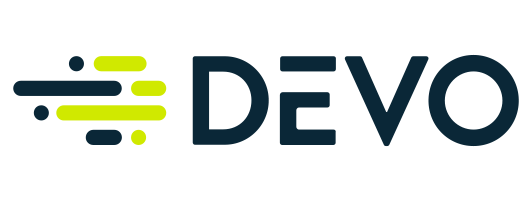
Payal Chakravarty: Overcoming bias in the workplace. [Security and Risk]
Payal Chakravarty: Hi, my name is Payal Chakravarty and I am the Head of Product for Security and Risk at Coalition.
Payal Chakravarty: Growing up I always thought I would either be, uh, a doctor like, that's a profession I really respected, or I would be an architect who would be building buildings, uh, combined math and art together because my interest was really in math, art, and biology. Those were my three favorite subjects.
Payal Chakravarty: When I was in high school, um, I got intrigued with the evolution of computers. This is, uh, back in the late nineties when it was an evolving area. Internet was just coming alive. So I got very intrigued by that and I was like, okay this seems like a fun place to tinker and understand and be hands on and build things and that's how I got into computer science and I was interested in electronics and hence I chose, uh, an engineering, uh, career path.
Payal Chakravarty: I grew up in India and, uh, I did my undergrad in India and, uh, out of graduation there were lots of opportunities for, um, joining software companies at that point in time. So, uh, there were lots of multinationals interviewing us so decided to foray into software and joined a company called IBM, uh, in India for a year before I decided to pursue my masters and come to the United States and, uh, study computer science here.
Payal Chakravarty: So I finished up master's and I actually joined IBM at the research triangle park location. They have a huge, uh, uh, campus there. Uh, I think we had about 10,000 employees there. So I, uh, did an internship at IBM and Microsoft during my masters, and I decided to pick up IBM. I was, uh, thrown into this project where we had to get, um, we had to work with customers, understand their needs for, um, they were in the data center, they were basically data center managers and they had a bunch of siloed tools at that point in time and what I had to do was, um, kind of study, uh, their use cases and, uh, stitch together massive, uh, amounts of data from different siloed tools and present those use cases in sort of dashboards and analytics. So my first experience was building really scalable, massively performing, uh, data marts and dashboards and, uh, reports and analysis, uh, encompassing, you know, several use cases and like answering questions like, Hey, where should I move my workloads? You know, where, what kind of capacity does my data center have? This is when, uh, the world was going through the physical to virtualization transition, cloud was still not a thing in the data centers.
Payal Chakravarty: But, um, I did many different things at IBM, but one of the things, one of the projects that I really loved was actually transitioning to the cloud. So I had to take an entire portfolio software, uh, and they were on prem software and move them to the cloud. So this is where I was exposed to hands on, figuring out what would it take to take a monolith, um, make it a service based product, uh, host it on the cloud, create a SaaS experience where users could do full self-service, try by, and you know, IBM hadn't done that before, uh, literally, uh, and then figure out, uh, everything from SLAs, to security, to uh, what it means to run on the cloud. So that was amazing because I learned so many things. Uh, and, and that made me very intrigued about building products for the cloud.
Payal Chakravarty: Right after IBM, I joined a little tiny startup called Sysdig. We were 30 people and we were figuring out how to do container monitoring because now we were transitioning. So I went from physical to virtual, virtual to cloud now, cloud to containers and microservices and, um, these workloads were extremely dynamic and transient and at massive scale with massive amount of connections that they're creating and we had to figure out how to monitor them with all those parameters. So Sysdig had come up with this, uh, exciting new technology, um, you know, leveraging system calls and EPPF to basically do all of these, uh, detections.
Payal Chakravarty: So that was my foreign to, um, sort of security and how I landed up in Coalition is, I been building software for enterprises for the longest time and enterprises have the power, they have teams and, you know, so investment in software and, uh, they have, um, uh, sort of processes everything to keep their environment secure. So I loved Coalition's, uh, mission there. Like, hey, you know, as I got your back, I will be there to take care of your financial liability if you get hacked or you have an incident, but at the same time, I will also provide you incident response. I will provide you help if you do have an incident to mitigate, to recover from it, to, um, you know, negotiate if needed. That's what brought me to, uh, to where I am today.
Payal Chakravarty: So two or three things that I do absolutely value. Uh, number one is of course keeping, uh, in product management, keeping the user in mind, keeping the customer in mind. What pin point are we trying to solve? Is it an important pin point to solve? Uh, asking that question many times to make sure that we are actually solving for the most important things and the most important pin points for our customers, not jumping to solutions, but understanding, um, the background before we, uh, make decisions about what we build. The second thing I would say from a leadership perspective is always trying to create clarity from ambiguity. So making sure that, aligning people on that clarity of vision, clarity of where we want to head and then taking that vision and the clarity that you created and the alignment that you created into an execution machine, and how do you constantly execute, iterate, fail, come back, but ensuring that you have clarity and alignment at all points in time.
Payal Chakravarty: There does exist biases in this industry. So, uh, there have been, uh, you know, times when, um, that has been challenged, right? Like I have been, um, and not stating any specific job, but I've been on calls where let's say, uh, you know, customer joins and wants to know who's the technical person in the room. And it's often frustrating to say um, yeah, which part of technology do you wanna talk about? Let's talk about it and we can, uh, work through it. So, uh, I think that's, um, overcoming bias is always something that, um, we as, uh, women leaders have to, uh, I feel strongly look out for and constantly prove ourselves, no matter where you are, no matter what you're doing, but I think the way you handle it is you negotiate or you kind of calmly handle the situation, there's no ego involved. You listen, you understand, you ask questions, and you build confidence and trust, and then they, you know, and that's how you build your credibility and your reputation, uh, overall. There's no easy way around it.
Payal Chakravarty: Follow something that you feel connected with. Don't just do it for, uh, joining a cool brand or getting a better salary or, don't do it for those reasons, follow something where you connect. There's something that really connects you and you feel deeply driven, uh, to solve that problem. Focus on the problem. I think once you follow that, uh, connection and you figure out a problem that you feel, uh, passionate about to solve, you will do whatever it needs to make it successful and that in terms will make you successful.
